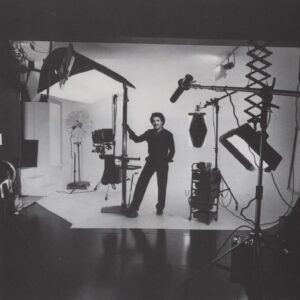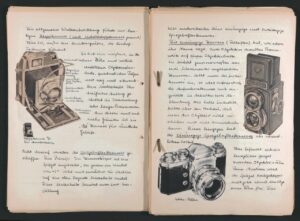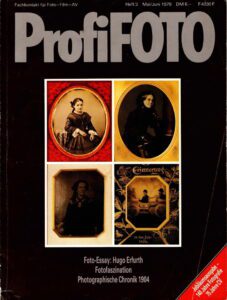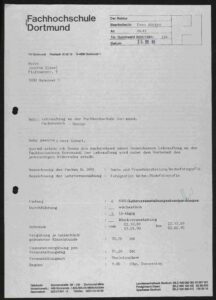Entrepreneur, trainer, curator, lobbyist, author and lecturer. Joachim Giesel is not only the owner of a successful photography studio in Hanover, behind the scenes he is also involved in various functions and institutions for the medium of photography. Atelier Photographie Joachim Giesel, first at Bödeckerstraße 60 and later at Plathnerstraße 9 in Hanover, offers space for elaborate productions on two floors with an office, a studio, a darkroom and a dressing room. His clients included companies such as Bahlsen, Continental, Lufthansa, Pelikan, Rossmann and Siemens, various car manufacturers such as Mercedes and Volkswagen, as well as newspapers and magazines such as Bravo, Brigitte, Hannoversche Presse and Stern. Over time, fifteen female photographers learn their trade with Giesel. In 1972, he was involved in the founding of spectrum Photogalerie. He has also been active in several associations since the 1960s: as chairman of the Arbeitskreis Bild and as the first chairman of the Centralverband Deutscher Fotografen, which is equivalent to the office of the Federal Guild Master in the photographic trade, as well as a member of the Berufsverband Freie Fotografen und Filmgestalter. He was also appointed to the Gesellschaft Deutscher Lichtbildner and the Deutsche Gesellschaft für Photographie. In the Central Association of German Photographers, Giesel advocates reforms in training, as the photographic trade is facing new challenges due to the introduction of photography as a course of study and the emancipation of photography as an independent art form. In this context, he published numerous articles in the (trade) press – such as Die Ausbildung zum Fotografen von morgen – müssen wir umdenken? (1979) and Wie überlebt das Fotohandwerk im Zeitalter der Elektronischen Medien? (1988), in which he points out shortcomings in training. On the one hand, Giesel criticizes the fact that photography is not treated as an art form in the curriculum. Secondly, the teaching concepts were outdated, as they did not include the combination of technical basics, as taught at vocational schools, with aesthetic questions of image design, to which photo design was dedicated. In his various roles, Giesel is therefore committed to reforming the training, in which technical and artistic aspects are taken into account, whereby a high technical standard must always be maintained in professional photography. By making a name for himself as an advertising and portrait photographer and photojournalist, reforming photographic training as a master and functionary, passing on his knowledge as an author and lecturer and establishing photography in a museum context through his curatorial work, Giesel played a key role in the institutionalization of photography in the Federal Republic of Germany.
Adrian-Rezan Öner



